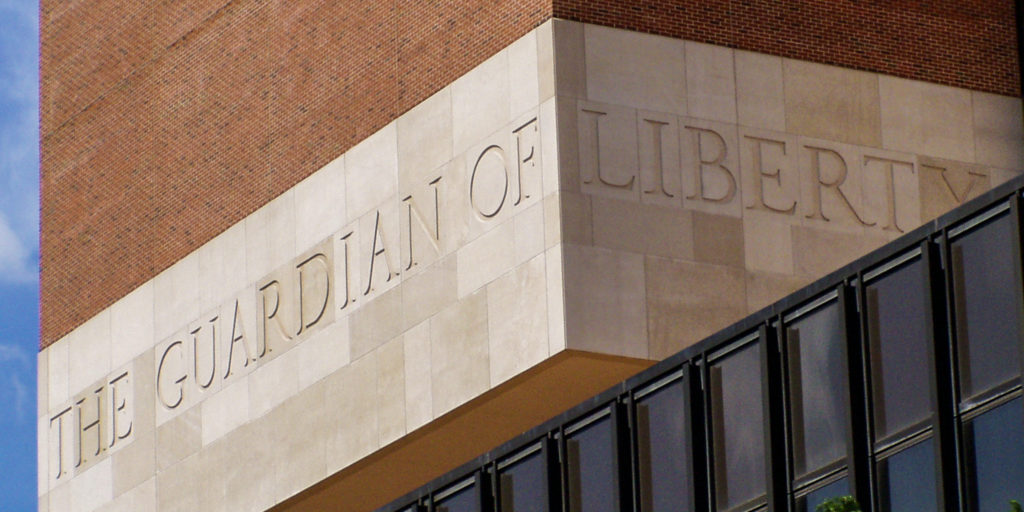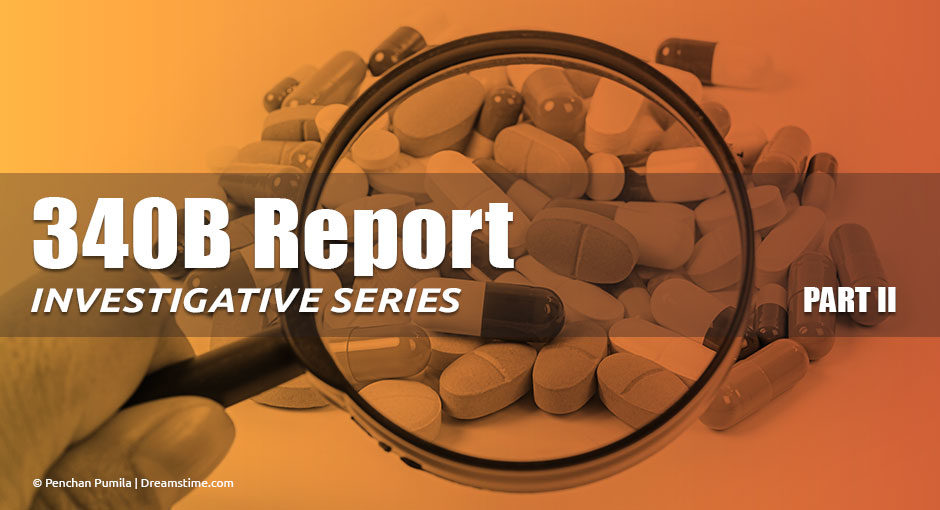Part 2 of 6—A Pharmaceutical Industry Insider’s Claims of Massive Fraud Against 340B Providers
Editor’s note: We invited Bristol Myers Squibb (BMS), which bought Celgene in November 2019, to respond to allegations of illegal or questionable conduct by Celgene with respect to its myeloma drugs and the 340B program. BMS said: “Bristol Myers Squibb has been working to integrate its 340B data systems, policies and functions after acquiring Celgene in late 2019. The IMiD’s [immunomodulatory imide drugs, the class of drugs that includes Thalomid and its analogues Revlimid and Pomalyst] existing limited distribution network complies with the law; it was audited by the Health Resources and Services Administration (HRSA) with no adverse findings, it does not discriminate against 340B covered entities and it supports compliance with the Food and Drug Administration’s (FDA) strict Risk Evaluation and Mitigation Strategies (REMS) safety protocols for these products. To date, HRSA has not communicated any required changes in these practices to BMS. Revlimid, Pomalyst, and Thalomid are widely available to patients. Any patient having difficulty accessing or affording their medicine should contact BMS patient support here.”
In August 2018, an ex-Celgene vice president “with over 30 years of experience in the pharmaceutical industry who held executive positions at multiple Fortune 500 pharmaceutical companies,” alleged in a complaint filed in federal district court in Philadelphia that Celgene’s stated reasons for limiting Revlimid, Pomalyst, and Thalomid’s distribution were fraudulent. According to the complaint, the former executive’s job included making sure the company provided 340B drug discounts required by federal law.
The real reason, the whistleblower said, was “to deny access to the drugs at the [340B] ceiling price.”
The whistleblower, who was Vice President of U.S. Market Access for the company, said the three myeloma drugs accounted for about 75 percent of Celgene’s total revenue from 2015 through 2017, generating more than $25 billion. “Had Celgene provided access at the ceiling price to the 340B covered entities, their profits for the sale of the myeloma drugs would have been dramatically reduced, by hundreds of millions of dollars per year, and those funds would be passed, as intended, to the 340B covered entities.”
The former company VP estimated that Celgene made about $298,000,000 in profit in 2018 alone by not paying 340B ceiling prices on Revlimid, Pomalyst, and Thalomid. According to the complaint, within the first two weeks of arriving at Celgene, the whistleblower received a large binder from the individual responsible for training her filled with copies of letters addressed to 340B entities who had complained that they were excluded from the LDN and could not access the myeloma drugs at the 340B ceiling price.
Each of the letters contained the same language advising the 340B providers that the reason they could not get the drugs at the 340B ceiling price was because the LDN was “closed” based on the REMS. The complaint also alleged that Celgene’s notice falsely claimed that 340B status was not considered in the “selection criteria” for admission to the LDN and that 340B entities were “proportionately represented” in the LDN. “In fact, entities were specifically excluded because of their 340B status and, upon information and belief, those entities were not proportionately represented in Celgene’s closed network.

Bombarded with Inquiries
Prior to retiring, the executive who was training the whistleblower, warned that “she should avoid industry meetings where 340B covered entities would be in attendance because they would bombard her with inquiries about why they could not purchase these drugs at 340B Ceiling Prices,” the complaint said.
The whistleblower’s allegations did not stop there. As we will cover in Part 3 of the series, they include claims that Celgene’s C-Suite was concerned that an audit of the company’s sales records would be “a catastrophic financial event” and that Celgene misled HRSA during its audit of the company. They also include allegations that the company was taking advantage of the so called 340B “orphan drug loophole.”
What Happened to the Complaint
In federal False Claims Act lawsuits like this one, whistleblowers—normally business insiders with firsthand knowledge of alleged fraud against taxpayers—sue on the government’s behalf and get a percentage of any recoveries. The government then must decide whether to join the case and take it over.
According to one authority on qui tam lawsuits, when the government takes over such a case, it obtains a recovery 95 percent of the time, usually a negotiated settlement. When the government declines, a whistleblower can carry on by him or herself, but with only a 5 percent chance of obtaining a financial reward. Faced with the prospect of prolonged litigation against a deep-pocketed foe and slim odds of obtaining a financial settlement or judgement, most whistleblowers give up after the government does.
The latter is what happened in the whistleblower’s case against Celgene.
Despite the gravity of the whistleblower’s allegations and insider knowledge about Celgene’s 340B compliance, and the dollar value of the alleged fraud, the government took a pass on the case early last year. It won’t say why.
The government’s decision, however, came at a time when federal health officials were publicly questioning whether they could enforce 340B program requirements not specified in the 340B statute or in 340B regulations.
The government publicly repeated these concerns just last Friday, in the U.S. Health Resources and Services Administration’s (HRSA’s) fiscal year 2022 budget request to Congress. “HRSA’s enforcement ability is limited, as guidance does not provide HRSA appropriate enforcement capability,” the agency responsible for the 340B program said. “Binding and enforceable regulations for all aspects of the 340B program would provide HRSA the ability to more clearly define and enforce policy and would significantly strengthen HRSA’s oversight of the program. These reforms would strengthen program integrity and oversight activities.”
The Trump administration, meanwhile, was issuing executive orders espousing and implementing its position that federal program guidance documents are non-binding. For U.S. Justice Department lawyers assigned to the case, winning the case, or getting BMS/Celgene to agree to a settlement, might have hinged on the enforceability of 340B program guidelines. One of the first things the Biden administration did when it came into power in January was to rescind President Trump’s executive orders.
The federal government filed its notice of its decision to decline to intervene in the whistleblower’s lawsuit against Celgene on Feb. 28, 2020. The judge unsealed the whistleblower’s complaint on March 3. The whistleblower voluntarily decided to dismiss the complaint on March 26, the federal government consented on March 30, and the judge dismissed the whistleblower’s complaint that same day—but without prejudice to the federal government. That means the federal government is not bound by the whistleblower’s decision to seek dismissal and could sue over the same concerns at a later date.
As set out more fully in the editor’s note above, when we asked BMS/Celgene for comment on the whistleblower’s allegations, the company maintained that its programs were compliant with the law.
Celgene/BMS has disclosed in U.S. Securities and Exchange Commission filings for the past several years that federal health officials have asked it about its limited distribution networks for Revlimid, Pomalyst, and Thalomid and its 340B program compliance.
Meanwhile, the Democratic-controlled U.S. House Oversight and Investigations Committee released a report and held a hearing last fall on Celgene/BMS’s “uninhibited” prices increases for Revlimid, and how the increases fueled Celgene’s profits. The report, which did not reference the 340B program, accused Celgene of abusing the same government-mandated drug safety program that figured in the whistleblower’s complaint, in this case to suppress competition from generic drug manufacturers.
Celgene/BMS’s restrictions on Revlimid, Pomalyst, and Thalomid sales and how they affect 340B covered entities also are on the radar of state attorneys general. Last December, a bipartisan group of 29 state AGs complained to then-U.S. Health and Human Services Secretary Alex Azar about six different drug companies “brazenly” ceasing to provide 340B pricing to covered entities using contract pharmacies. “This conduct by drug manufacturers is not a just recent problem,” they said in a footnote, pointing out that 340B pricing was not available to all 340B covered entities under Celgene’s limited distribution network for Revlimid and the other two myeloma drugs.
Xavier Becerra, the new HHS secretary, was one of the driving forces behind the letter in his former capacity as California attorney general.
Monday in Part 3: The path from Thalidomide, to Revlimid, to a 340B whistleblower lawsuit


